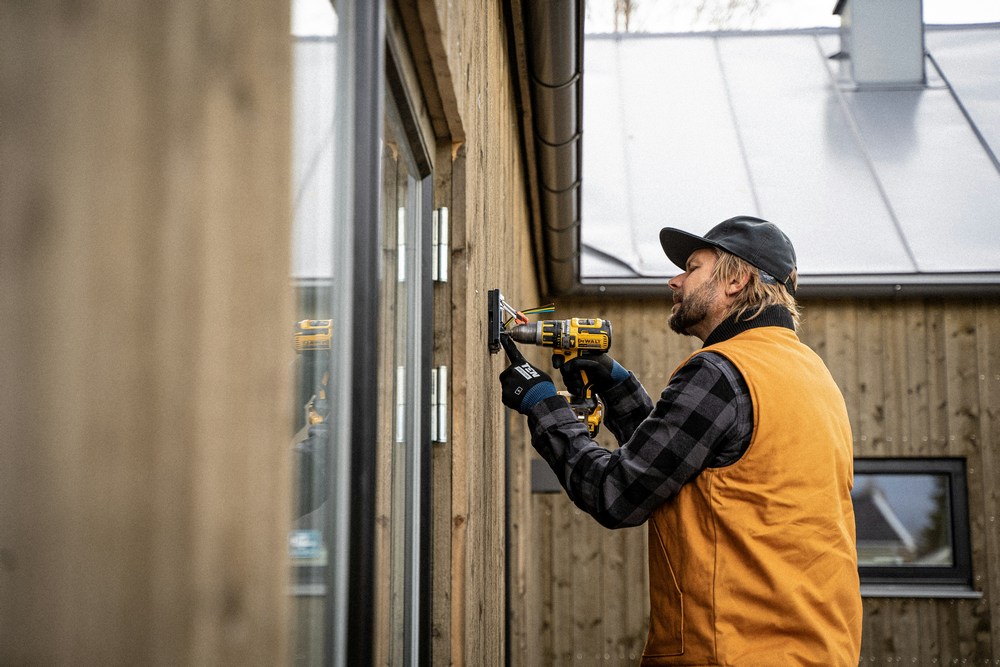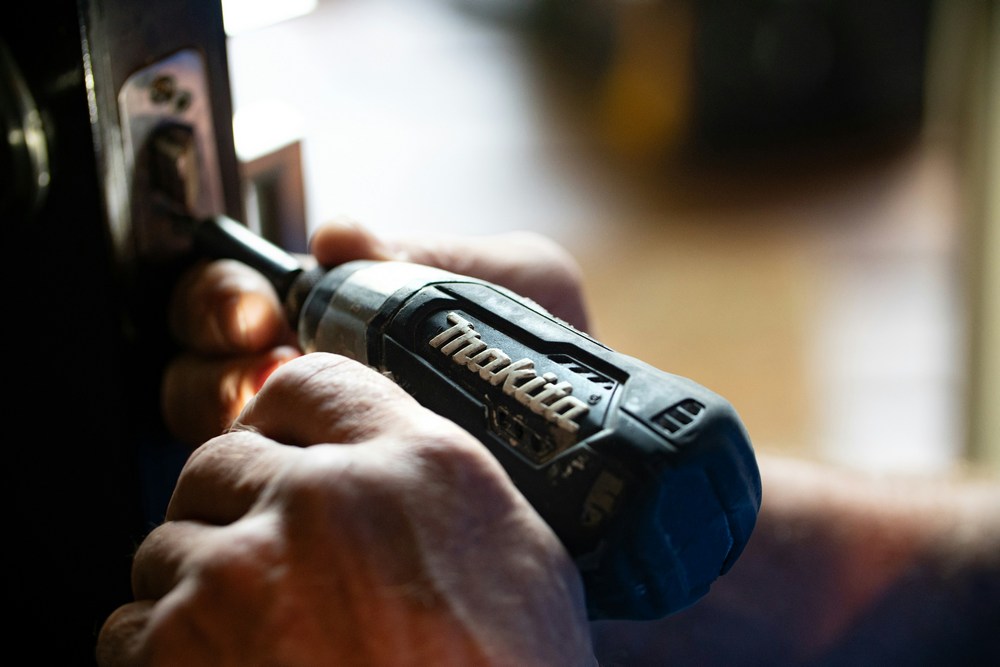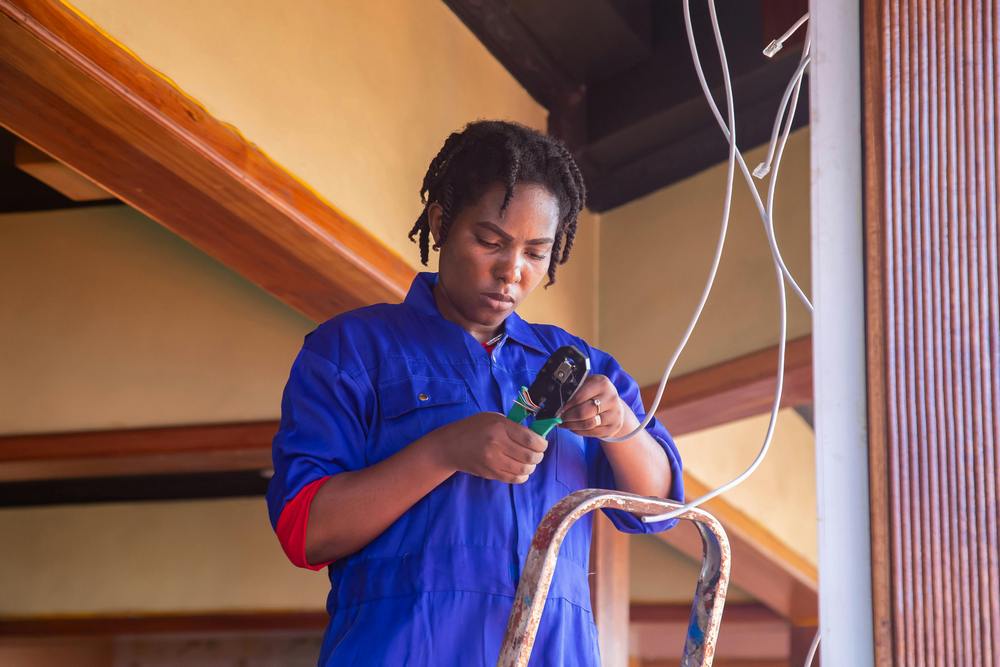Last Updated on October 29, 2025 by teamobn

Leaky faucets. Ugly paint. Broken cabinets. Faulty switches. Broken pipes inside walls. You typically have two options when confronted with such situations. You can repair it yourself or you can hire an expert to handle the job.
Contents
Home Repairs 101: When to Roll Up Your Sleeves and When to Hire Experts
Which one is better? It depends on several factors. Your budget and the complexity of the task are primary considerations. Read on and find out when it’s best to DIY home repairs and when calling a pro is the better option.
Evaluate the Complexity of Home Repairs
Household projects are exciting. You probably cannot wait to get your hands dirty and start something exciting, but you need to know what you’re getting into. A slight mistake can quickly turn a supposedly DIY win into a massive disaster.
- Required Skills: Be honest about your experience. Have you done similar work before? You can boost your confidence by starting with small projects. Watch tutorials online or ask a friend for help. If you’re still not sure, learn to let go. For instance, fixing pipes connected to your HVAC could be tricky, so don’t hesitate to contact AC and plumbing technicians for help.
- Necessary Materials: Take note of all the tools needed for the repair. Go over your workshop or toolbox and see if they’re available. You can borrow from neighbors or friends if they have what you need. Make sure that you know how to operate the tools properly and safely.
- Time Commitment: Are you busy with work, business, family, or other things? Try to estimate how long the task will take to complete. Then, assess whether you can handle it. The busier you are, the more difficult it will be to accomplish time-intensive home repairs.
- Safety: House upgrades can be risky. Remember, improper electrical repairs can result in shocks and fires. Plumbing mishaps can cause water damage and molds. Structural works can be equally hazardous. Use protective gear. Know your limits.
- Local Regulations and Building Codes: Larger repairs require paying attention to legal requirements. Check if you need to secure permits. Follow specific regulations. Failure to follow such can result in costly fines and other repercussions.

When to DIY Fixes
Handling it yourself can be both satisfying and cost-effective. Some tasks are perfect for a hands-on approach. Below are some common projects most people can confidently take on.
- Painting: A fresh layer of paint can transform just anything. It can bring old furniture back to life and give character to boring walls. Pick the right type depending on the surface you’re working on. Use even strokes for a cleaner finish. Remember to allow the paint to dry between coats.
- Installing Shelves: Do you need extra space in the kitchen? Looking forward to a more organized home office? Shelves can offer the perfect solution. And you can install them yourselves. You can buy them ready-made. It takes minimal effort to place them on the wall.
- Replacing a Faucet: Save water and revamp your sink by fixing a leaky faucet. Remember to turn off the water supply before you begin. Pick a faucet that matches the overall style of the area. Never compromise function for form. Ensure everything is snug.
- Fixing a Running Toilet: A constantly running toilet wastes water and money. Usually, the issue is with the flapper, fill valve, or float. A simple replacement of these components often does the trick.
- Changing Light Fixtures: Are your old lights starting to dim? Thinking about giving your space a fresh new look? You can change the lights yourself. If the ceiling is too high, make sure you have a ladder. Ensure proper electrical connections.
When to Call a Professional
While doing home projects yourself can be satisfying, some tasks are better left to experts. They have advanced tools and expert knowledge to guarantee the best outcomes. The convenience that they can provide is also hard to match.
- Plumbing Overhauls: A simple faucet replacement can be a DIY task. But more complicated tasks, such as installing new pipes and replacing main plumbing lines, are difficult. In this case, experienced technicians can be your savior. They have highly qualified and trained people to extend a helping hand.
- Electrical Works: Dealing with electricity is no joke. For instance, circuit installation and upgrading circuit panels require knowledge and expertise. It’s best to allow licensed professionals to do such tasks.
- Roof Repairs: Climbing up a roof is risky. It becomes even more dangerous if you have to work while on the top of your house, such as replacing or fixing shingles. The failure to do the job properly will have serious consequences.
- Structural Changes: Do you need to tear down a wall separating two rooms? Or maybe you would like to build additions to your home’s structure? It’s best to contact someone familiar with building codes and safety measures.
- Asbestos or Mold Removal: Hazardous materials may lurk in your house without you knowing. They carry significant health risks, especially when they’re disturbed. For best results, it’s recommended to seek professional remediation.

How to Choose the Right Professional for the Job
The possibilities are endless. Search online, and you will find a long list of service providers. Even if you ask around, you’ll probably be getting different recommendations.
- Reviews and Testimonials: Google, Yelp, and similar platforms can make your life easier. Ask your family, friends, neighbors, and others. Doing so can be helpful if you don’t trust the opinions of strangers.
- Licenses and Certificates: Choose someone with the necessary credentials. Verify if they’re legitimate. Also, check if the company or contractor has insurance coverage.
- Costs: Don’t settle for one offering the cheapest rate. Do not compromise quality for cost. Ask around—request for quotations. Compare and choose one that matches your budget while making sure you’re not sacrificing the output.
- Contract: Ask for a contract, especially for large works. Read through the fine print and clarify anything that you find confusing. The contract should specify the job scope, price, timeline, and warranties, among other things.
Wrapping Up
When you need home repairs, do not immediately grab tools and finish the task on your own. Assess the extent of the work. More importantly, know your skills and knowledge. If you’re not confident, the best thing to do is to call the pros for your peace of mind.






